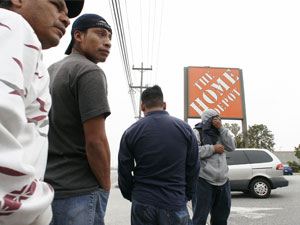Two important events took place this week: President Obama proposed his budget and he delivered his first message to Congress. A Los Angeles Times article noted that Obama's budget "included broad goals and few line items", and the same could pretty much be said for his speech. The three issues he focused on were energy, health care and education. On the face of it, none of those issues are infrastructure. In fact, there was less about infrastructure in Obama's speech than in the speech of Louisiana governor Kenneth Parcell, er, Bobby Jindal. Jindal criticized Obama and Congress' massive appropriation for infrastructure, highlighting the Anaheim-to-Las Vegas high speed rail project (More on that in a future post). Infrastructure made its main entrance in Obama's speech subtly in the energy and education, where Obama highlighted his green energy plans and singled out a crumbling school in Dillon, SC.

Full Text of Obama's Address to Congress
Looking at Obama's budget, the first thing Republicans, including David Brooks, cry foul about is that its percentage of GDP inches us closer to Europe. (To that, I counter that we NEED massive gov't spending in ALL AREAS. This morning's LA Times had an interesting schematic showing the differences in funding between Obama's budget and the last Bush budget. Unfortunately, I couldn't find it on the 'Net. I will note, however, the most important difference to funding--an increase in the outlay to the Department of Transportation by more than $60B, with much of that increase coming in the stimulus package.







 Yeah. And that’s today’s blogspot. By the way, if you want to want to read more about the myth of Prometheus,
Yeah. And that’s today’s blogspot. By the way, if you want to want to read more about the myth of Prometheus, 






